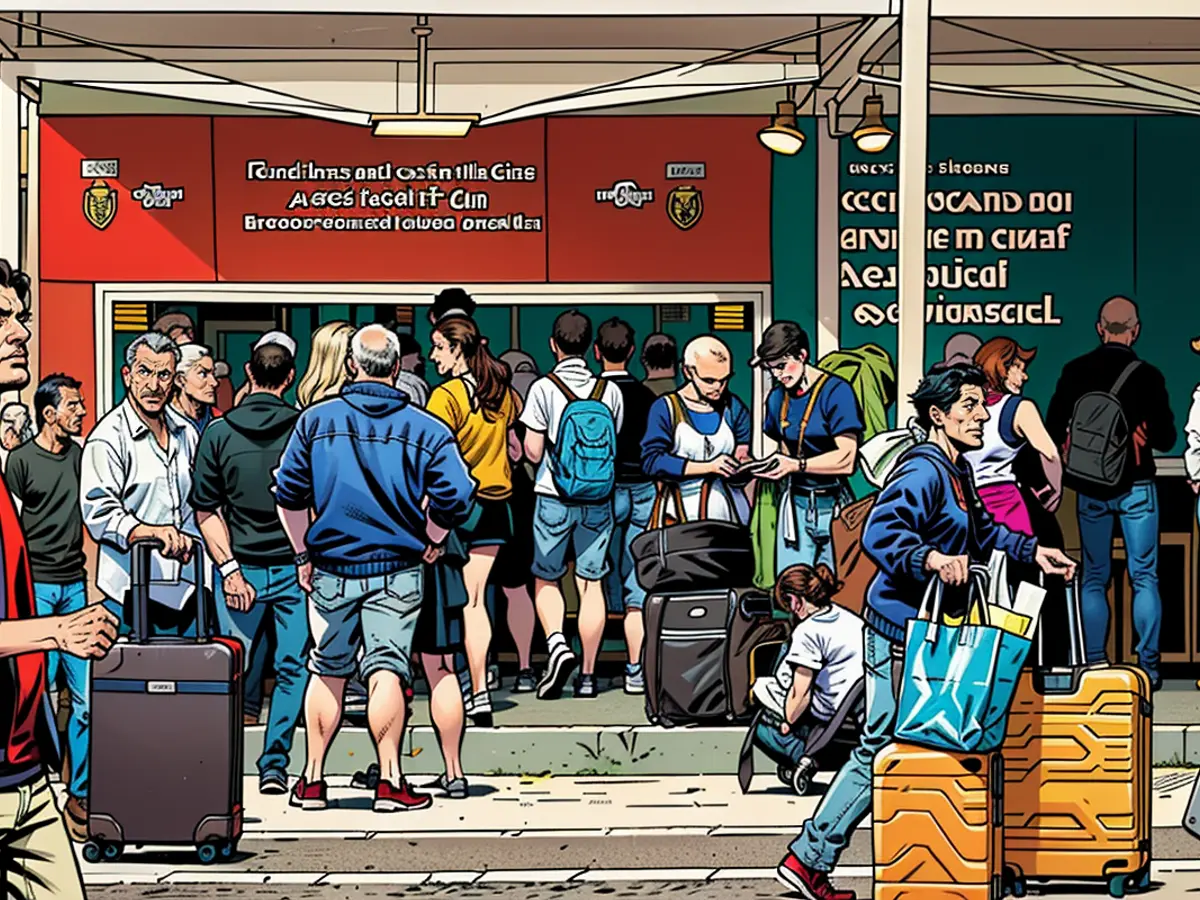Venice commits to raising its day-tripper tax and proposes a multi-tiered admission system.
In October 2024, the city administrations revealed their forthcoming strategies for the upcoming year.
Beginning in 2025, there will be an increase in days where visitors will be required to pay for daily entrance, going from 29 days in 2024 to 54 days.
The cost structure will undergo a change as well. Previously, the fee was a flat 5 euros ($5.40). Now, visitors booking their visit more than 4 days ahead will still pay the 5 euro fee. However, those booking within the 3-day window before their arrival will be charged double, amounting to 10 euros ($10.80).
An essential aspect that remains unchanged is the application of the fee only to the city's core area. The outlying islands, such as Lido, Murano, and Burano, are excluded from the fee zone.
Travelers passing through Piazzale Roma (bus station), Tronchetto, or the port are also exempt, provided they do not enter the city center.
The method of ticket booking remains the same, with both fee-paying tourists and exempt guests required to book via this website.
Any day-visiting tourists over the age of 14, with the exceptions of those participating in sports events, third-degree relatives to city center residents, residents within the Venice municipality, and yacht attendees at the Salone Nautico boat show, are obligated to pay the fee.
Violators will face penalties.
Speaking about the plan, Mayor Luigi Brugnaro proclaimed, "Venice is leading the way in combating mass tourism." He further added that the system in place this year helped gather data for future improvements.
"The goal is still the same: To establish a new system for controlling tourist influx and discourage day tourists in Venice during specific periods, respecting the city's fragility and uniqueness," he asserted.
The council reiterated that their goal is not profit generation, only to control the number of visitors.
Encouraging Responsible Tourism Practices
Proposing measures for short-term rentals, the authorities suggested a more lenient approach, hoping to inspire tourists to behave responsibly rather than imposing restrictions.
As per Brugnaro, this is a "pact between the council and landlords." From 2025, properties booked for more than 120 days per year must comply with the authorities' guidelines as hosts. This includes welcoming guests in person, providing trash and recycling bags with specific codes, and being available for guest assistance.
Venice collects waste daily from every house, but littering, incorrect recycling, and misuse of apartment bins by tourists is a significant issue. The council has not yet disclosed how they plan to enforce the use of assigned trash bags by tourists.
Landlords must offer guests a 24-hour contact number in case of emergencies.
Landlords have 120 days to register their properties once the city council approves the policies, but if they fail to register, the opportunity will be available until December 31, 2026.
Brugnaro believes these regulations will encourage "virtuous behavior" and "harmony with residents' daily lives."
The proposed measures considerably differ from those implemented in other overburdened cities dealing with the rampant growth of short-term rentals.
New York City, for example, prohibits renting entire properties for less than 30 days. However, individual rooms can be rented as long as the property owner is present.
European cities like Paris, Barcelona, and Berlin, on the other hand, have brought in hurdles for obtaining permits and heavy fines for illegal rentals.
According to Inside Airbnb, there are 8,322 Airbnb listings in Venice, with 77% being entire properties. About two-thirds of the hosts have multiple listings, and their data shows an average listing with 98 booked nights per year, which still falls within the 'good behavior' regulations.
Venice's population has dropped below 50,000 for the first century, primarily due to a lack of long-term rental properties and affordable housing.
The news of the city's travel fee changes has sparked interest among potential visitors, leading to numerous discussions in travel forums.
In light of the city's efforts to manage tourism and promote responsible practices, various travel websites and blogs have been highlighting Venice as a destination that encourages eco-friendly and culturally sensitive tourism.

Read also:
- Fear of escalation in the Middle East: US Secretary of State Blinken travels to the region again
- Government circles: US Secretary of State Blinken to travel to Middle East again
- Bridging days 2024: How you can double your vacation this year
- Germany has wanderlust: how tour operators and airlines are looking ahead to the next travel year








